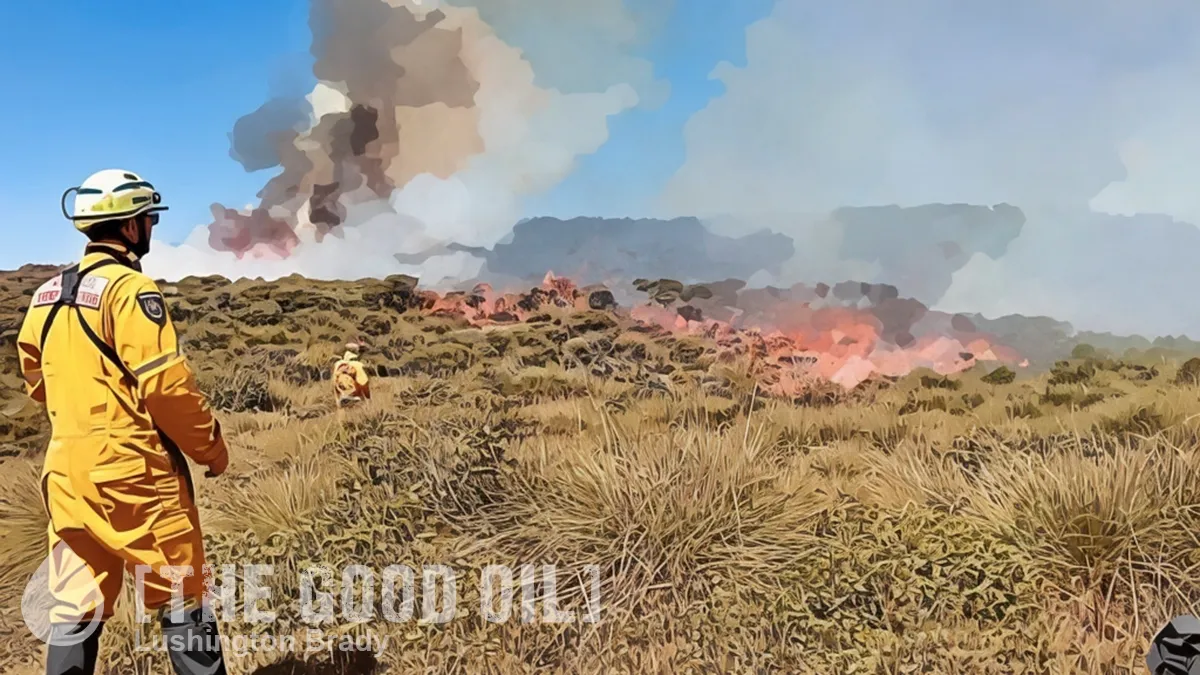Table of Contents
Just recently, one Tasmanian council had the guts to swim against the tide of local government virtue-signalling and almost unanimously reject a motion to declare a “climate emergency”.
Despite the outrage of the green lobby, the council made the right decision. Firstly, there was no action plan attached to the motion: it was literal virtue-signalling. Secondly, claims of a “climate emergency” are plain hysteria which do nothing but whip up panic. They are inimical to the cause of sensible climate action. People in a panic do not make rational decisions.
For a good case study of the danger of panicked decisions – and a solid refutation of the greens’ beloved “precautionary principle”– we need only look to Japan.
A newly released study of deaths in the aftermath of the accident at the Fukushima Daiichi nuclear power plant has called for precaution with regard to the much-touted Precautionary Principle.
The study, by economists at the universities of Columbia (United States), Nagoya (Japan) and Verona (Italy), and published by the IZA Institute of Labor Economics, an independent economic research institute in Bonn, Germany, concluded that the closing of Japan’s nuclear power plants after the 2011 accident at Fukushima resulted in death from cold of thousands of people.
Domestic electricity costs rose by up to 38 per cent after the closures of the nuclear plants, making life-sustaining home-heating unaffordable for many people, especially the elderly.
The Fukushima disaster was about as bad as nuclear accidents get, beaten only by the monumental cock-up of Chernobyl. Unlike Chernobyl, however, the accident itself caused no deaths and the resultant radiation is unlikely to do so in the future. What it did cause, though, was a panic. Japan quickly shut down all its nuclear plants.
In reality, there had been no damage to any of the nuclear plants other than Fukushima Daiichi, and none had any demonstrable risk of radiation leaks. There was no scientific reason for closing these plants. Doing so was a precaution – and an unnecessary precaution that cost the population dearly.
The sudden loss of the reliable (and safe) nuclear power forced Japan to import expensive fossil fuels. Power prices spiked. Consequently, many power consumers simply could not afford to keep their heaters on that winter. At least 1280, and up to 4500, deaths are attributed to this rapid spike in power prices. But these are not the only deaths laid at the feet of the precautionary principle.
The Japanese Government had acted prudently in immediately evacuating the region exposed to the risk of radiation and contaminated water, but then erred in maintaining the evacuation for several years. Over 1200 deaths are officially attributed to physical and mental trauma caused by the evacuation and prolonged residence in shelters, with 90 per cent of the victims aged over 66.
Radiation levels back in their empty homes were at levels common throughout the world and perfectly safe. Maintaining the evacuation as a precaution was unnecessary and a disaster for many…Applying the “precautionary principle” beyond the Fukushima region, and for so long at Fukushima, did more harm than good.
The precautionary principle emphasises the worst-case scenario and justifies action on the grounds that no harm will be caused if those worst fears prove unfounded. This study provides a salient reminder that this assumption is flawed: there is always a downside to the precautionary principle.
That reminder is timely for Australia, where the rush into renewable energy sources has already pushed up the cost of electricity to homes and industry.
newsweekly.com.au/
As already reported by The BFD, the push to adopt renewables in Britain is estimated to have led to 5500 deaths last year, mostly of the poor and elderly. The precautionary principle is invoked as a virtuous rule for life by the Greens. In practice, like much Green ideology, it is a disastrous folly which most hurts the poor and vulnerable merely to massage the consciences of wealthy twits.









